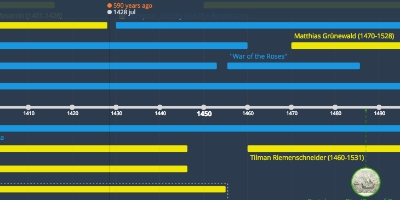The Industrial Revolution (1760 - 1840) (jan 1, 1760 – jan 1, 1840)
Description:
The Industrial Revolution was the transition to new manufacturing processes in the period from about 1760 to sometime between 1820 and 1840. This transition included going from hand production methods to machines, new chemical manufacturing, and iron production processes, the increasing use of steam power, the development of machine tools and the rise of the factory system.Began in Britain: 6 Reasons
- The Industrial Revolution began in Britain for 6 reasons
- The period of peace and stability which followed the unification of England and Scotland
- No trade barriers between England and Scotland
- The rule of law (enforcing property rights and respecting the sanctity of contracts)
- A straightforward legal system that allowed the formation of joint-stock companies (corporations)
- The absence of tolls, which had largely disappeared from Britain by the 15th century, but were an extreme burden on goods elsewhere in the world, and
- A free market (capitalism).
There were two main values that really drove the Industrial Revolution in Britain. These values were self-interest and an entrepreneurial spirit. Because of these interests, many industrial advances were made that resulted in a huge increase in personal wealth and a consumer revolution. These advancements also greatly benefitted the British society as a whole. Countries around the world started to recognize the changes and advancements in Britain and use them as an example to begin their own Industrial Revolutions.
Rise in population
Added to timeline:
Date:
jan 1, 1760
jan 1, 1840
~ 80 years
